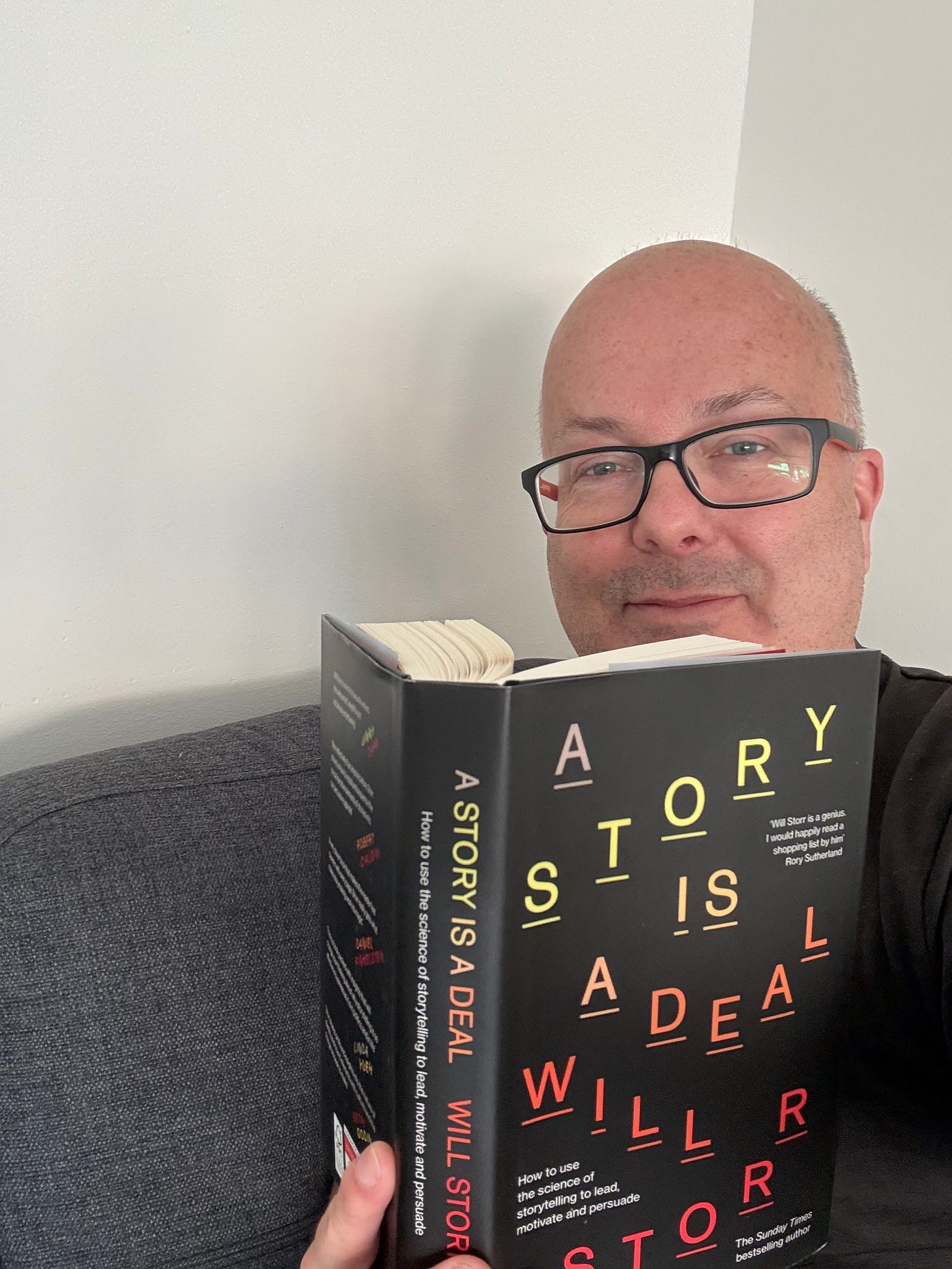How to unlock the power of successful groups: An interview with Colin Fisher
Issue 185: The COLLECTIVE EDGE explains why you're probably looking in the wrong direction when it comes to troubleshooting groups
When things fall apart in a team, we tend to blame a few bad apples for dragging it down. But what if we were looking in the wrong place the whole time? In The Collective Edge, organizational psychologist Colin M. Fisher invites us to stop thinking of success and failure as products of individual effort and to start seeing them as consequences of group structure. The book explores the basics of group dynamics for a general audience and highlights the invisible forces that shape how we collaborate, make decisions, and achieve (or derail) goals altogether.
“(T)he group(s) literature has silly terms like “group entititativity.” It inherently lacks heroic protagonists and villains. So our science doesn’t have the impact it should. I hope this book helps more people learn about and use the decades of fabulous science we have about understanding and harnessing the tremendous power of group dynamics.”
In our interview, Colin explains how group structure dictates results more than most people think. When groups that lack a solid structure, the right mix of people, shared goals, well-designed tasks, and appropriate norms they are more likely to fail. To build a healthy group structure, Colin argues that examining norms, establishing psychological safety, and working backwards from end goals and tasks is essential.
You can learn more about The Collective Edge and check out more of Colin’s work on his Substack! Plus, we are giving away 1 free physical copy to The Power of Us subscribers! To enter the giveaway check out the details following the interview…
What does your book teach us about social identity or group dynamics?
“The Collective Edge” is all about group dynamics! The core question I ask is: How can we get people to pay more attention to group dynamics? The conversations on management, self-help, and leadership are all extremely individualistic. So many people view the locus of change as the individual. My book teaches readers how to think from a collective perspective and how to build and maintain truly effective groups and teams.
What is the most important idea readers will learn from your book?
Group structure is king. All the evidence suggests that groups that lack a solid structure—the right mix of people, shared goals, well-designed tasks, and task-appropriate norms—are destined to fail. Yet, the first point of call for many people is to try to directly intervene in group process. Michael Johnson and colleagues have a great experiment, where they gave people a scenario of a team in trouble and asked participants:
What do you want to change: structure, process, or people?
While 84% tried to change process, only 5% tried to change structure (and you could pick more than one).
Other research shows the same thing—when we try to build effective groups, or improve the ones we’ve got, we spend far too much energy working on process and people, and far too little fixing the structure of our groups.
Why did you write this book and how did writing it change you?
Oh gosh. I actually got pulled into writing this book. I wrote an explainer about the real science of groupthink (or, rather, conformity pressure) for The Conversation after former UK Prime Minister Boris Johnson was accused by a former cabinet member of encouraging groupthink. My agent, Max Edwards, read that piece and said he liked how I wrote about groups and thought a book explaining the science of groups was a great idea. And he talked me into it! But I followed through because (like you guys), I think the science of groups doesn’t get enough attention.
Overall, I think it’s a marketing problem — the “group literature” has silly terms like “group entititativity.” It inherently lacks heroic protagonists and villains. So our science doesn’t have the impact it should. I hope this book helps more people learn about and use the decades of fabulous science we have about understanding and harnessing the tremendous power of group dynamics.
Writing the book was like an entirely different world. I’ve learned so much about myself as a writer, the publishing industry, and how hard it is for any message to capture people’s attention.
What will readers find provocative or controversial about your book?
I think some people will wonder about how critical I am of individualism. We experience the world as individuals. Both America and the UK are relatively individualistic cultures. Convincing people that the problems facing the world today (and their solutions) will require effective collective action is tough.
I’m also bracing myself for the backlash from orchestral conductors. (My undergrad degree is from a music conservatory, so I know a few!) I’m very critical of conductors as a model for group leadership. It’s such a waste of talent and poor organizational structure!
Do you have any practical advice for people who want to apply these ideas (e.g., three tips for the real world)?
I mean, that’s kind of the whole thing! If I had to distill this to three big tips, I’d say,
Before the group meets, work backward from the goals of the group (both task and relational) to help you shape it’s composition, tasks, and norms
Build in reflection points (usually, the midpoints and endings of tasks) to reaffirm and revise these aspects of structure
Fostering a culture of psychological safety and norms that support all members sharing their perspectives goes a long way to solving most group problems
News and Updates
Our book giveaways from authors have been a success! Books have been sent out far and wide… One of our subscribers, Matt from Australia won a copy of A Story is A Deal by Will Storr earlier this spring and sent us a proof shot!
Keep commenting on our interview newsletters to enter our book giveaways or upgrade your subscription to paid to be automatically entered every month.
To enter this month’s giveaway, either…
Be a paid subscriber to the newsletter. Paid subscribers are automatically entered into all our book giveaways! We will have more book giveaways with different authors every month. You can subscribe or upgrade your subscription below.
If you are not a paid subscriber yet, simply leave a comment below about what groups and teams would you like to change to enter the drawing.
Note: Giveaway winner must be a resident of the United States. (Due to shipping and customs restrictions). [Enter before November 4th, 12 pm PST. One winner will be selected at random and emailed on November 5th!]
Catch up on the last one…
Last week, we shared a guest lecture with Jay and Asha Rangappa from The Free Academy substack. They discussed how identities can move the needle on a healthy democracy.








Thanks so much for featuring The Collective Edge here! Proponents of the science of groups need to group together!